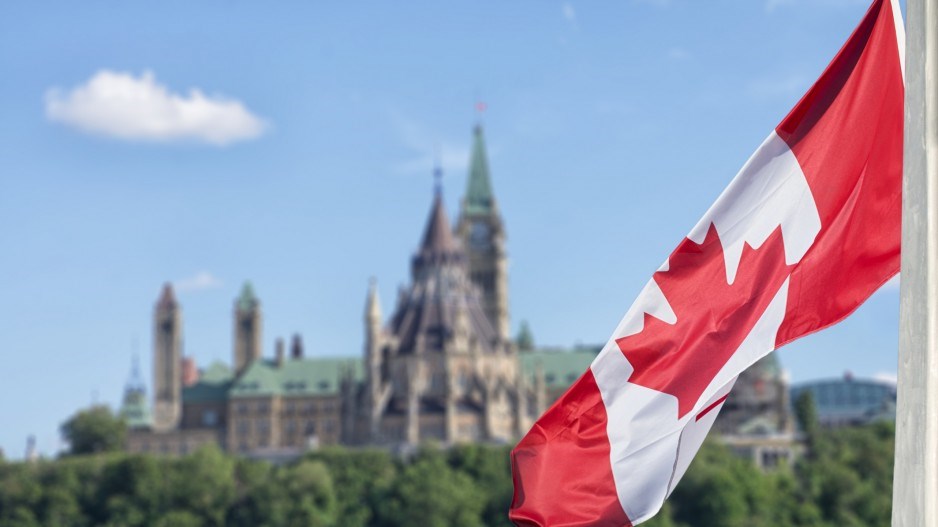Special rapporteur David Johnston released his first report on foreign interference on Tuesday, which involved analyzing recent media reports on allegations by unnamed national security sources that China meddled in the 2019 and 2021 federal elections.
The former governor general tapped by Prime Minister Justin Trudeau to investigate the issue said he dug into the validity of that reporting and assessed whether the Liberal government ignored threats or advice from national-security agencies.
Johnston ruled out a public inquiry, finding that much of it would have to be held in private due to top-secret information, but promised to hold his own public hearings instead. His final report is due at the end of October.
Here are five things we learned in his first report.
1. He says there are serious problems with how intelligence is shared within government.
Johnston said he didn't find evidence that cabinet ministers or Trudeau knowingly ignored intelligence, but found there needs to be a better flow of information shared between them, and why.
For example, staff at the Prime Minister's Office told Johnston they're given a large binder in a secure room to review material, with no ability to take notes for security reasons.
The binder contains a significant mix of topics from around the world, but no one says, "You should pay attention to this issue in particular," Johnston's report said. If staffers are away, they may not see the binder that day.
The prime minister also told Johnston he's only briefed on matters that are supported by reliable information.
2. He accuses some media organizations of misconstruing intelligence due to a lack of context.
Johnston, who had access to classified documents and intelligence, disputed several Global News and Globe and Mail reports after reviewing associated intelligence in a broader context.
But he said that broader context cannot be shared publicly.
Johnston said he put together a detailed classified annex of what he said actually happened in relation to each media report. That will be provided to the prime minister, members of cabinet, as well as officials or opposition leaders who are willing to get security clearance.
3. He says there is no intelligence confirming that money from China reached specific candidates in the 2019 election.
Media reports have published allegations that federal candidates received funds during the 2019 federal election.
"Limited intelligence" supports the notion that the Chinese government intended for funds to reach seven Liberal and four Conservative candidates, Johnston's report said, but there is no intelligence suggesting that any of them received that money.
Other reports had indicated that a network of candidates and operatives in the Greater Toronto Area were willing participants in the Chinese Community Party's goals.
But Johnston found "no basis" to conclude that candidates were working in concert or understood the intentions of apparent Chinese government proxies who were communicating with them.
"No recommendation about a network of candidates was made as no network was known to exist," the report said.
4. He says there is little to support a former Conservative leader's claim that specific candidates were defeated because of foreign interference in the 2021 election.
After the 2021 federal election concluded, former Conservative leader Erin O'Toole asserted that China had interfered in the electoral process, costing his party eight or nine seats.
Johnston said it's hard to accept this assertion based on his investigation.
He said there's a possibility that some Chinese Canadians disagreed with the Conservative party's platform, but that's "not interference, it is the democratic process."
Johnston's report also threw water on the idea that China backed a Liberal minority government result in the 2021 election, as suggested by a Globe and Mail report in February.
Johnston's report said China is generally "party agnostic" and intelligence suggests its intention was to marginalize anti-China candidates rather than favouring certain parties.
5. He says Toronto MP Han Dong did not advise China's consulate to extend the detention of Canadians Michael Kovrig and Michael Spavor.
In March, Global News published a story citing unidentified security sources who alleged Dong told a Chinese diplomat in February 2021 that releasing Michael Kovrig and Michael Spavor would benefit the Conservatives.
The two Canadians had at that time been detained in China since December 2018, just over a week after the RCMP arrested Huawei executive Meng Wanzhou in Vancouver on a U.S. extradition warrant.
Dong resigned from the Liberal caucus to sit as an Independent MP following that report and is has filed a lawsuit against Global News for those and other allegations related to Chinese interference.
"The allegation is false," Johnston wrote in his report, saying he based his conclusion after reviewing the same intelligence report provided to Trudeau, adding the allegation has had an "adverse effect" on Dong.
Johnston said that while Dong maintained "close relationships" with Chinese consular officials at least through the 2021 election, and did discuss the case of Kovrig and Spavor with the Chinese diplomat, "he did not suggest to the official that (China) extend their detention."
A spokeswoman for Global News and Corus Entertainment has previously said in a statement that the media organization is "very mindful of the public interest and legal responsibility of this important accountability reporting."
This report by The Canadian Press was first published May 23, 2023.
Mickey Djuric, The Canadian Press




